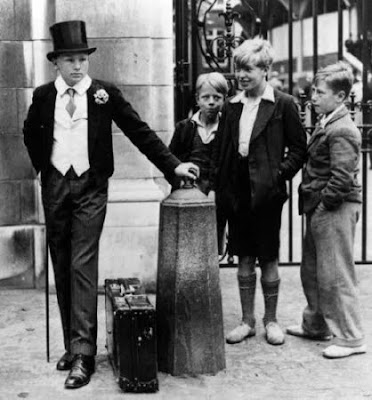 Bezos adds that "Kindle readers read a lot", but what does that mean? I listen to a lot of music on my MP3 player, but I would argue that the quailty of my listening has deteriorated, as the technology allows me to jump tracks so easily.
Bezos adds that "Kindle readers read a lot", but what does that mean? I listen to a lot of music on my MP3 player, but I would argue that the quailty of my listening has deteriorated, as the technology allows me to jump tracks so easily.It feels like a long time ago (it is a time long ago) since the days when I'd carefully remove an LP from its sleeve, put it on the turntable, gently lift the stylus arm and place it down on the outer edge of the record, listening with anticipation to the crackles and clicks. Whether I was playing a Shostakovich symphony or a Stevie Wonder album, I would lie back and listen to the whole thing, experiencing the record as a whole.
I'm ashamed to say that I can't remember the last time I listened to a piece of music in its entirety. I can partly blame my children - we live in a small house and I don't have a "room of one's own". However, there is nothing to stop me lying down on the bed and listening to a piece of music on my headphones.
When I do listen to anything on my MP3 player, I find that I have the attention-span of a two-year-old. I will dutifully begin listening to Beethoven's Eroica symphony, right up to that sublime moment when Beethoven gets really angry, then my attention will wander and I'll start zipping through my tracklist: St John Passion, Andy Warhol, Siegfried Idyll, Meera Nam Chin Chin Chu, Luonnotar, The Headmaster Ritual, Concerto for Orchestra, Wichita Lineman, Trying Not to Think About the Time, Peter Grimes...
30 seconds here, 15 seconds there, I know I've only myself to blame, but it's too easy to change tracks. I need a deterent - the modern-day equivalent of the tedious, time-wasting process of rewinding a C-120 cassette back to the beginning.
If I had a Kindle with several dozen books at my fingertips, I'd probably go through a similar process, giving up on anything that wasn't utterly gripping. My Kindle would have to be restricted to one book at a time.
I'm not a Luddite, but I'm concerned about the increasing emphasis on quantity rather than the quality of experience. Our Kindles can store hundreds of books whilst our MP3 players and cameras can store thousands of tracks and photos, but what is the end result? Are we leading richer lives as a result?
I can see certain situations where the Kindle comes into its own. If you're backpacking for several months or are one of those commuters who devour airport novels, the Kindle is ideal. But, to quote the title of a novel, books do furnish a room. The book isn't just a medium, but the thing in itself. It is something that we see, touch, smell and even hear, as we flick through the pages.
Working with secondhand books, I am acutely aware of the sensorial qualities of a book: the slightly indecent softness of calf leather, the odour of stale pipe tobacco, the cracking of the binding as you open an old book, the unpleasant, chalky feeling of photographic plates, the smell of public libraries and, occasionally, damp, mildewy cellars.
These qualities proved to be too much for one of my customers who, last week, returned a 1920s book to me with a handwritten letter explaining that she felt that the book was too dirty to take to bed. There was nothing wrong with the book. Perhaps my customer would be happier with a nice, germ-free Kindle?
I shall not be buying an e-reader or I-Pad. I don't need more technology. What I do need is something that I got rid of years ago and have been quietly regretting it ever since: a wind-up gramophone.
Twelve years ago, when I lived in Twickenham, there was a power-cut late in the evening. Everyone was plunged into silence and darkness. However, my wife and I lit candles, opened a bottle of wine and listened to Noel Coward records on our gramophone. It was one of those perfect moments.
No piece of technology I own has ever bought as much pleasure. With their vast array of functions and huge storage, my gadgets promise so much, but somehow they seem to deliver so little.








